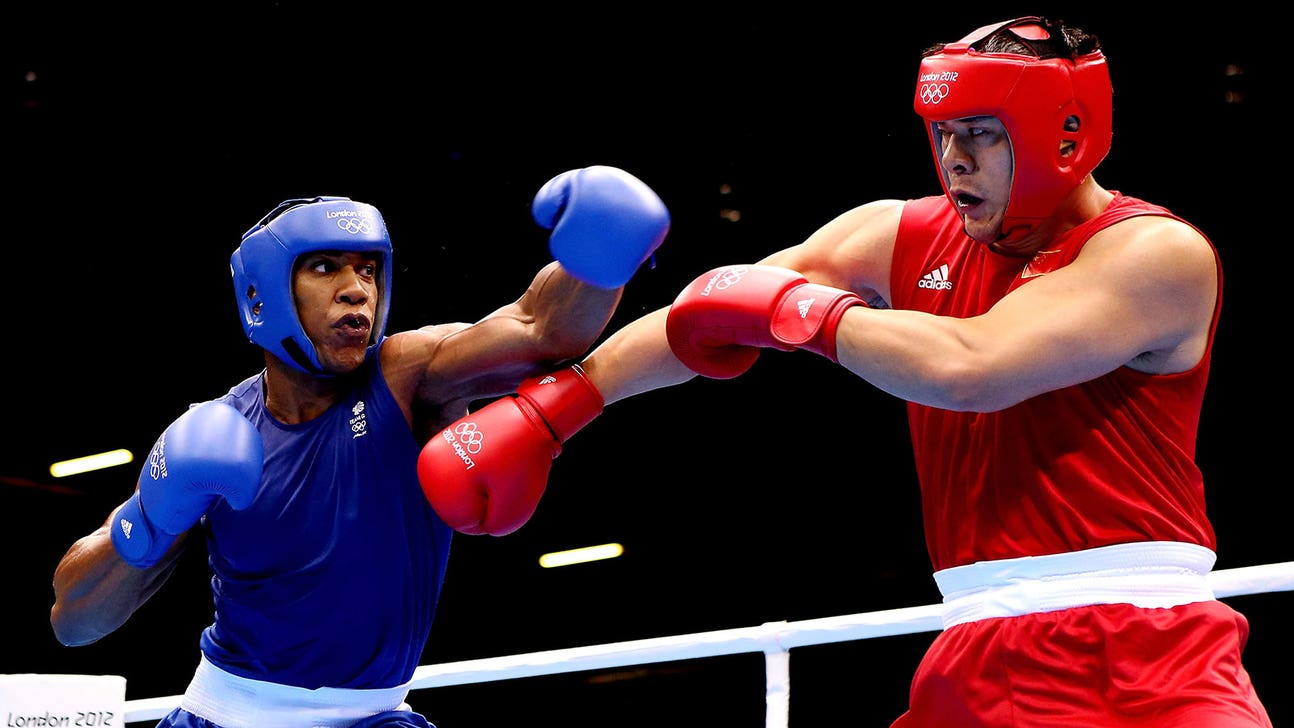
Boxing officials defend no-headgear decision at Commonwealth Games
GLASGOW, Scotland -- Boxing officials defended a decision to stop using headgear for male competitors at the Commonwealth Games, saying there had been no concussions at the competition up to Saturday's medal rounds.
The International Boxing Association (AIBA) decided to stop using headgear in events such as the Commonwealth Games last year, citing medical statistics showing the protective padding can cause jarring to boxers' heads and contribute to brain damage.
Some trainers and boxers called for headgear to be reintroduced, however, due to the grueling schedule of bouts in events as short as the Commonwealth Games.
Female and younger boxers still use headgear in international competitions, with statistics showing there are fewer incidences of concussions among those fighters.
Dr. Abdellah Bessalem, a vice-president of the AIBA, said Saturday that since headgear was introduced to the Commonwealth Games in 1986 -- two years after they were used at the Olympic Games in Los Angeles for the first time -- the concussion rate had not been reduced.
He also said that use of a newly-developed cream in Glasgow helped cut down on the healing time for cuts, which increased among male boxers with headgear not being used. The cream was made available to boxers and their trainers on an optional basis because of the risk of allergic reactions, but could become mandatory once it is fully tested, Bessalem said.
"Ultimately when the boxers get familiar with having the competitions without headguards more often, the cut rate will be completely lowered," he said.
Dr. Hamid Khadri, the association's medical chairman, reiterated how the removal of headgear has helped reduce concussions in boxing.
"You have hits to the head, but you don't see the damage," Khadri said. "Your skull inside, you have micro-traumatism, so the boxer has a false impression of safety. He exposes his head to repetitive blows. This is what is dangerous, and the concussion rate is increased."
Khadri also said some trainers added water to the headgear to make the pads heavier, allowing fighters to force their way into opponents' bodies with added power and weight.
English boxer and Olympic silver medalist Amir Khan, however, called for headgear to be reinstated, mostly because the boxers in a tournament such at the Commonwealth Games fight frequently in a short period of time.
"I would say headguards need to come back, especially when you've got fighters who are fighting nearly five times a week," Khan said. "You might get cut in the first day ... head clash, you might be the favorite to win the tournament. Overall, it's more safe for the fighters."
The medical issues notwithstanding, aesthetics may also have something to do with the decision to stop using headgear at the games. After the first day of boxing in Glasgow, spectators and some officials said being able to see the boxers' faces led to a more viewer-friendly experience.
"In the past, TV viewers and spectators and the boxing family were frustrated not being able to see the emotions and expressions of the boxers, as they were hidden by the headguards," Bessalem said.
Male boxers will also compete without headgear at the Asian Games being held in South Korea in September.
When asked if the removal of headgear would be reassessed after those games, Bessalem indicated it wouldn't: "I don't think we can go back. It's impossible to go back."